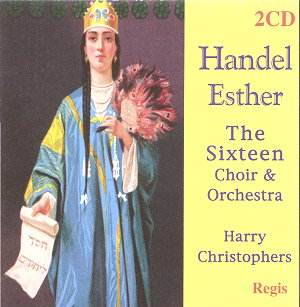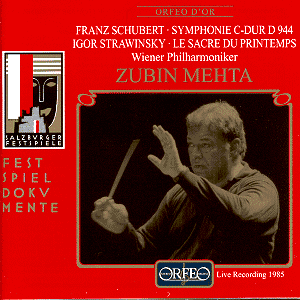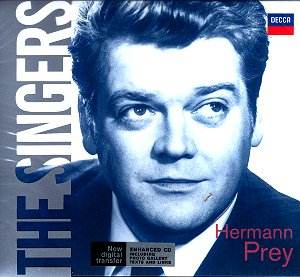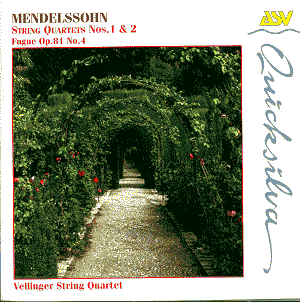 Composer: Georg Friedrich Handel
Composer: Georg Friedrich Handel
Works: Esther, Oboe Sonata in G minor, HWV 404
Performers: Anthony Robson (oboe), Lynda Russell (soprano), Nancy Argenta (soprano), Michael Chance (alto), Simon Berridge (tenor), Simon Birchall (bass)
Recording: Choir and Orchestra of The Sixteen, Harry Christophers, Recorded at St Judes on the Hill, May 1995
Label: Regis RRC 2025
Handel’s oratorio Esther, composed in 1718 for the Earl of Caernarvon’s estate at Cannons, represents a fascinating intersection of early 18th-century English musical culture and biblical storytelling. Though it was not performed in London until 1732, its intimate scale and direct emotional appeal have garnered it considerable appreciation in the modern repertoire. This recording not only offers a performance of Esther but intriguingly supplements it with an oboe concerto, a choice that, while lacking direct historical precedent, enriches the listening experience by foregrounding the oboe’s prominent role within the oratorio.
The performance by The Sixteen under Harry Christophers is characterized by its clarity and precision, hallmarks of this distinguished ensemble. Anthony Robson’s oboe playing deserves special mention; it is both lyrical and technically assured, weaving through the orchestral fabric with a beguiling expressiveness that complements the vocal lines beautifully. The oboe sonata, while not originally part of Esther, finds a natural home here, showcasing the instrument’s capabilities and enhancing the overall texture of the recording.
Vocal contributions are uniformly excellent, with each singer bringing distinct interpretive insights. Mark Padmore’s aria “Tune your harps to cheerful strains” is delivered with exquisite control and a buoyant tone that encapsulates the spirit of celebration inherent in the text. Similarly, Nancy Argenta’s rendition of “Praise the Lord with cheerful noise” is notable for its charming simplicity, where the harp’s gentle accompaniment creates a serene backdrop for her bright soprano. Michael Chance’s performance of “O Jordan, Jordan, sacred tide” stands out as a defining moment of emotional depth; his long lines and nuanced phrasing evoke the profound longing expressed in the text, masterfully drawing the listener into the narrative.
The recording quality is exemplary, with a balance that allows for the individual voices and instruments to shine while maintaining the integrity of the ensemble sound. The engineering captures the warmth and immediacy of the performance space at St Judes on the Hill, enhancing the intimate character of this work. Compared to other recordings of Esther, such as that featuring the Academy of Ancient Music, Christophers’s interpretation is refreshingly direct and engaging, favoring clarity over bombast, which suits Handel’s elegant, yet dramatic style.
This release from Regis not only provides an accessible entry point for Handel enthusiasts but also stands as a testament to the enduring appeal of Esther. The combination of skilled musicianship, thoughtful interpretation, and high production values creates a recording that is both enjoyable and deeply resonant. For those who appreciate Handel’s gift for lyrical beauty and dramatic narrative, this recording is a valuable addition to any collection.



